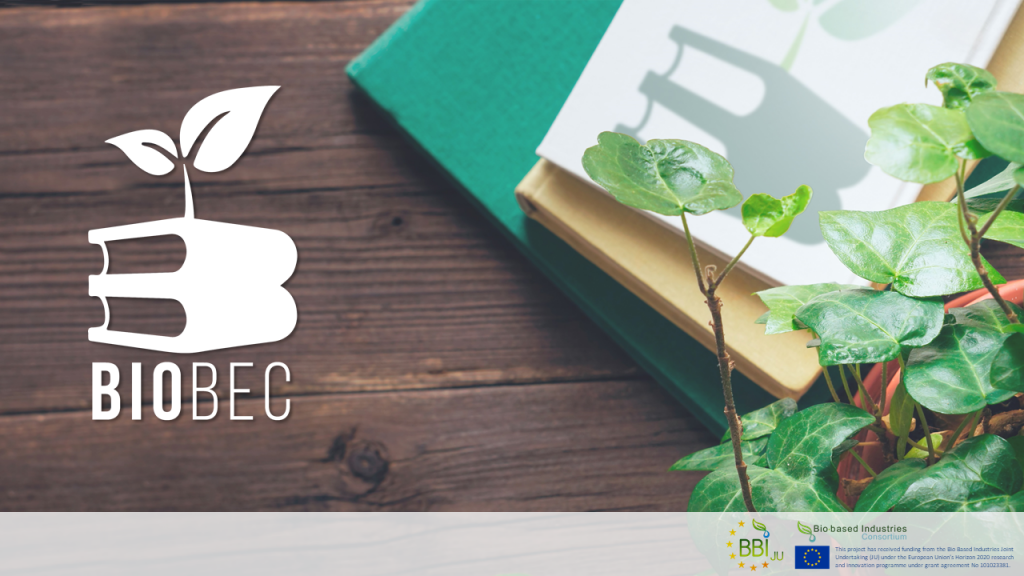
- BIObec is bringing together 19 partners from 12 different countries that will work for 30 months and build bridges between the bio-based industry and the education system.
- The project proposes a concept that merges the traditional idea of an education centre with that of a knowledge hub: the Bio-Based Education Centres (BBECs).
BIObec, a new project leveraging education to unlock the full potential of the European Union’s bioeconomy, officially kicked off with the celebration of an online meeting today, 14 September 2021.
The increasing importance of the bioeconomy, a sector in full growth, encompasses a great potential for economic development and the creation of new jobs. However, it also generates a demand for a qualified workforce with new skills and professional competencies. BIObec aims to maximise the opportunities offered by the bioeconomy by interlinking universities, innovation labs, and R&D centres with industrial actors and regions to avoid skills and competencies gaps.
In order to achieve this, the project is bringing together 19 partners from 12 different countries that will work for 30 months and build bridges between the bio-based industry and the education system.
BIObec proposes a concept that merges the traditional idea of an education centre – such as a university or a vocational education and training centre – with that of a knowledge hub: the Bio-Based Education Centres (BBECs), which will act as multi-level knowledge hubs bridging the gaps between academic institutions, students, innovation entities and policymakers.
“We are very glad to coordinate a project proposing a collaborative perspective for the development of new skills and educational approaches”, said Davide Viaggi, Professor and Researcher at University of Bologna and BIObec’s Project Coordinator. “By developing the concept of the Bio-Based Education Centres, we expect to align the bio-based industry needs for skills and competencies, with the workforce potential through consistent interactions between all the relevant stakeholders.”
BIObec aims to set the basis for the development of BBECs in six different European regions to answer the needs of the bio-based industry at local, regional, and national levels. These BBECs are expected to ensure a wide geographical coverage in Europe and address a wide range of topics linked to the variety of value chains and the different institutional contexts, paving the way for replication in other regions.
The bioeconomy: a sector in full growth
The bioeconomy comprises the production of renewable biological resources from land and sea, like crops, forests, fish, animals, and micro-organisms and their conversion into food, materials, energy, and related goods. Europe’s shift to a low carbon economy is stimulating the bioeconomy’s growth, and it is estimated that this emerging sector could create a million new jobs by 2030, especially in rural and coastal areas. However, these jobs would need to be filled by a specialised and qualified workforce, and thus, there is a growing demand for new educationprogrammes that can deliver the needed skills and competencies. It is against thisbackground that BIObec has been funded with the aim to bridge the gap between the industry needs and the educational offer.
For more information, contact: info@biobec.eu
About Biobec
BIObec is coordinated by the University of Bologna and formed by a multi-disciplinary consortium including:
- 11 educational institutions: the Universities of Bologna, Hohenheim, Eastern Finland, Autonomous of Barcelona, Wageningen, Trakia, Munster Technological, Natural Resources and Life Sciences in Vienna, and the National Institute of Technology for Life, Food and Environmental Sciences – AgroParisTech, IHE Delft, Institute for Water Education, and the Educational Research Institute (IBE).
- A national research body: Consiglio Nazionale delle Ricerche.
- Three industrial clusters from the bio-based industry: Technological Corporation of Andalusia (CTA), Food and Cluster Bio Denmark, and Irish Bioeconomy Foundation.
- Two SMEs with large experience in dissemination and communication in the bioeconomy: FVA and Sustainable Innovations.
- A non-profit organisation integrating business and academia: Foundation for Education and Social Dialogue Pro Civis.
- And a private research institute: Research Institute for Fodder Crops, Ltd., Troubsko.
BIObec Consortium

Source
BIObec, press release, 2021-09-14.
Supplier
AgroParisTech
Bio-based Industries (BBI) Joint Undertaking
Consiglio Nazionale delle Ricerche (CNR)
European Union
Forstliche Versuchsanstalt Baden-Württemberg (FVA)
Irish Bioeconomy Foundation
Sustainable Innovations Europe
Technological Corporation of Andalusia (CTA)
Universität Hohenheim
University of Bologna
Share
Renewable Carbon News – Daily Newsletter
Subscribe to our daily email newsletter – the world's leading newsletter on renewable materials and chemicals













